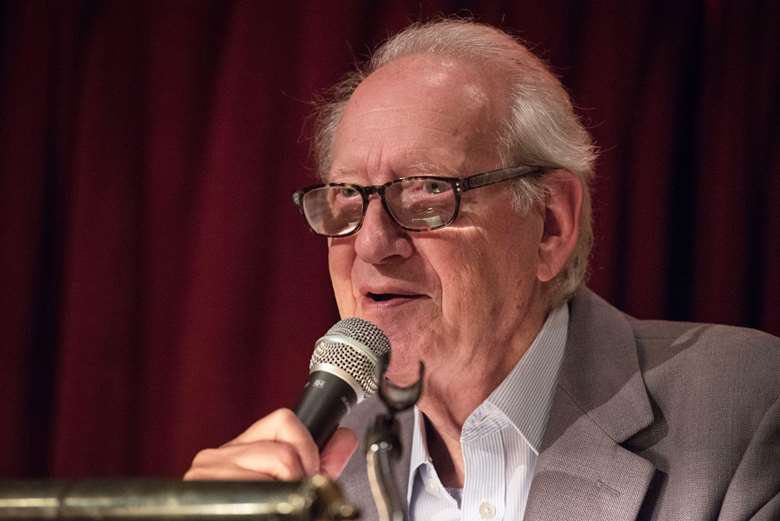Dan Morgenstern: 24/10/1929 – 7/9/2024
Brian Priestley
Monday, September 9, 2024
Brian Priestley pays tribute to the esteemed jazz writer and educator who has died aged 94

Jazz has always had its commentators and its promoters, in the widest sense, and one of the greatest was Dan Morgenstern. Probably best known to fans as the author of comprehensive notes to reissues, he was tireless in his pursuit and support of the music, especially as director of the Institute of Jazz Studies.
Initially raised in Vienna, he was the son of Ukrainian-born writer Soma Morgenstern, whose anti-Nazi journalism in the 1930s led to speedy exile when Austria was annexed in early 1938. The 8-year-old Dan and his mother left separately, settling in Copenhagen where he was taken to see Fats Waller on the latter’s European tour, which made an indelible impression. He was 18 before he moved to New York, rapidly acquainting himself with the scene and particularly with trumpeter Hot Lips Page, who took Dan under his wing and introduced him to Harlem’s nightlife and its musical celebrities.
After college studies and work in a jazz record-shop, Morgenstern soon began writing about the music, becoming New York correspondent for the U.K.’s Jazz Journal (1958-61), then successively the editor of Metronome, Jazz (which later became Jazz & Pop) and DownBeat (1967-73). He also produced live concerts at New York’s Museum of Modern Art, and Chicago-based television shows, including the last performance of Coleman Hawkins. It was in 1976 that he took over the Institute, originally started by writer Marshall Stearns and transferred on the latter’s death to Rutgers University in Newark. Under Dan’s guidance, it became a repository not only for magazines and records from around the world, but historic pre-owned instruments and historic playback equipment that facilitated the remastering of items such as the Dean Benedetti recordings of Charlie Parker (someone who, of course, Dan met in his early New York period).
He also ensured that the Institute welcomed researchers, and his genuine encouragement of younger writers and educators was the identifying characteristic of his public persona. If he had reservations about aspects of the music, they were largely kept to himself and he prided himself on embracing all styles. While he was on the judging committee of Denmark’s JazzPar awards (1990-2004), he was secretly proud of its international winners being so varied (including Tony Coe and Django Bates) that the scene’s various factions could never anticipate who would be chosen next. Related activities included lecturing, radio dj-ing and sitting on Grammy award committees – he himself won no fewer than eight Grammies for his liner notes, many of them reprinted in his 2006 book Living With Jazz.
On a personal note, I’m indebted to Dan for publishing my early contributions to DownBeat and for his friendship in the ensuing years. He was always available to answer any obscure queries and to contribute gems of information, most recently about the New York career of disc-jockey Symphony Sid, whose early-50s broadcasts he was doubtless listening to, live. Like many other writers, I’m deeply grateful for his encyclopaedic knowledge of jazz’s history and personalities, as well as his readiness to share it.


